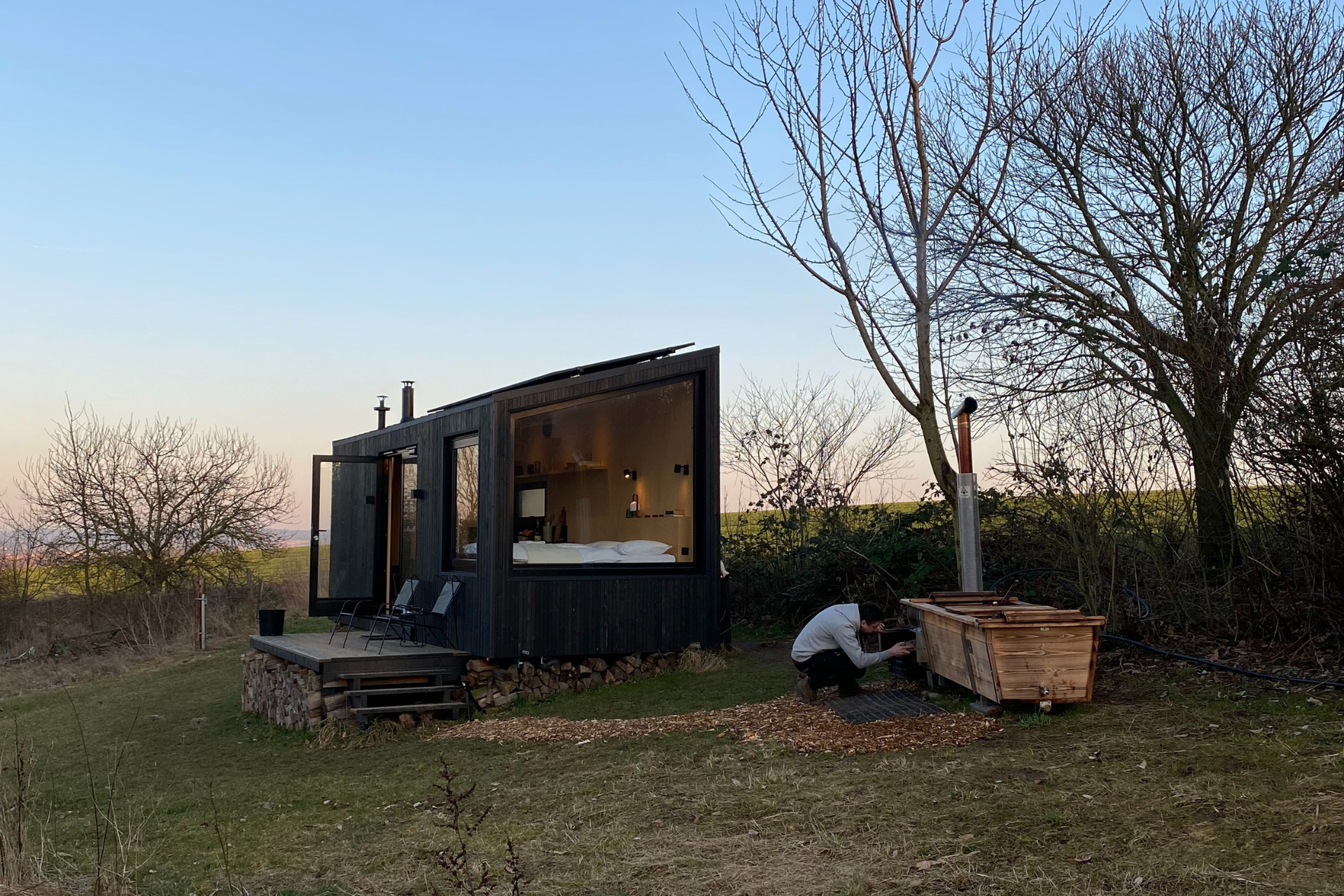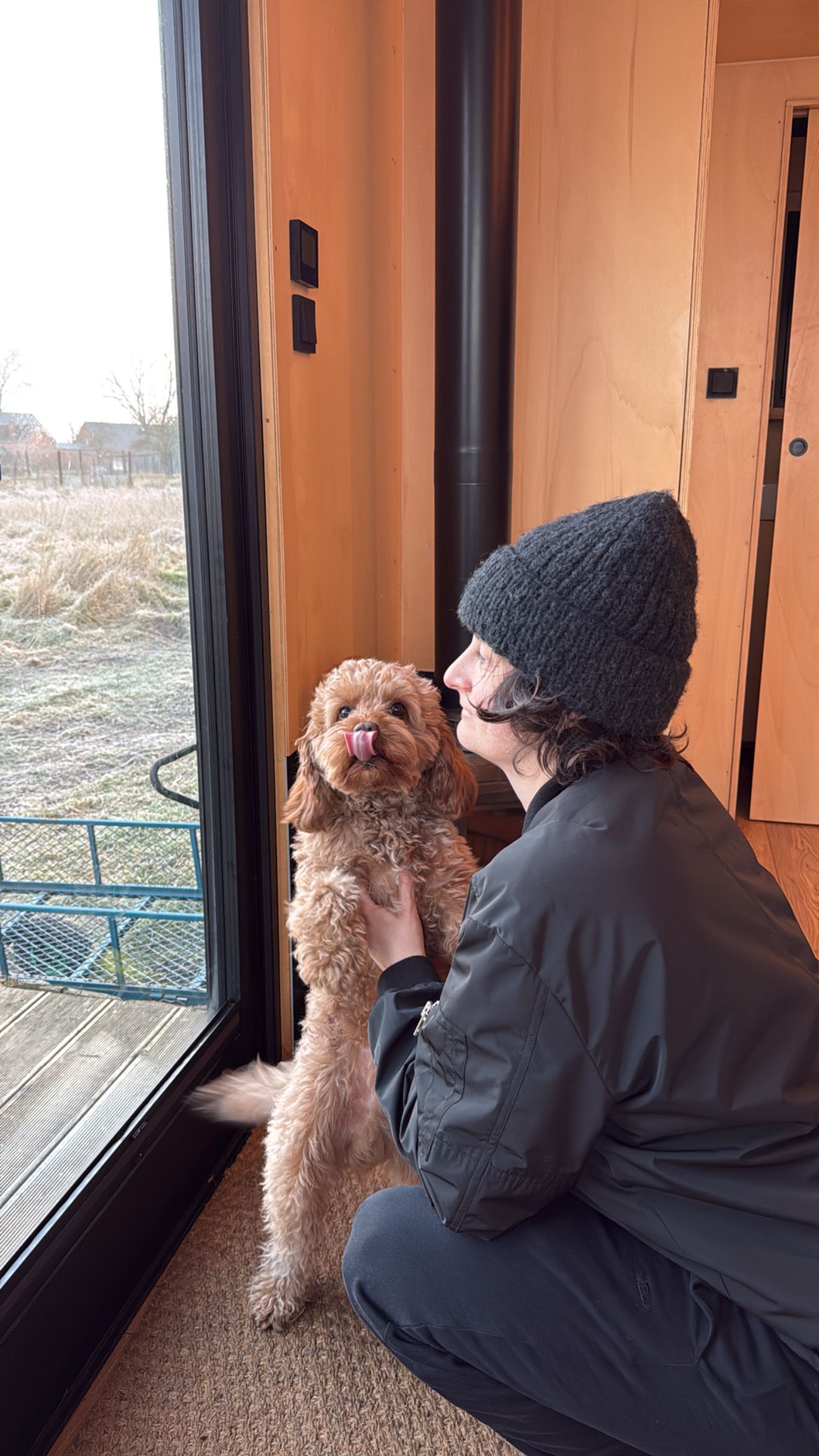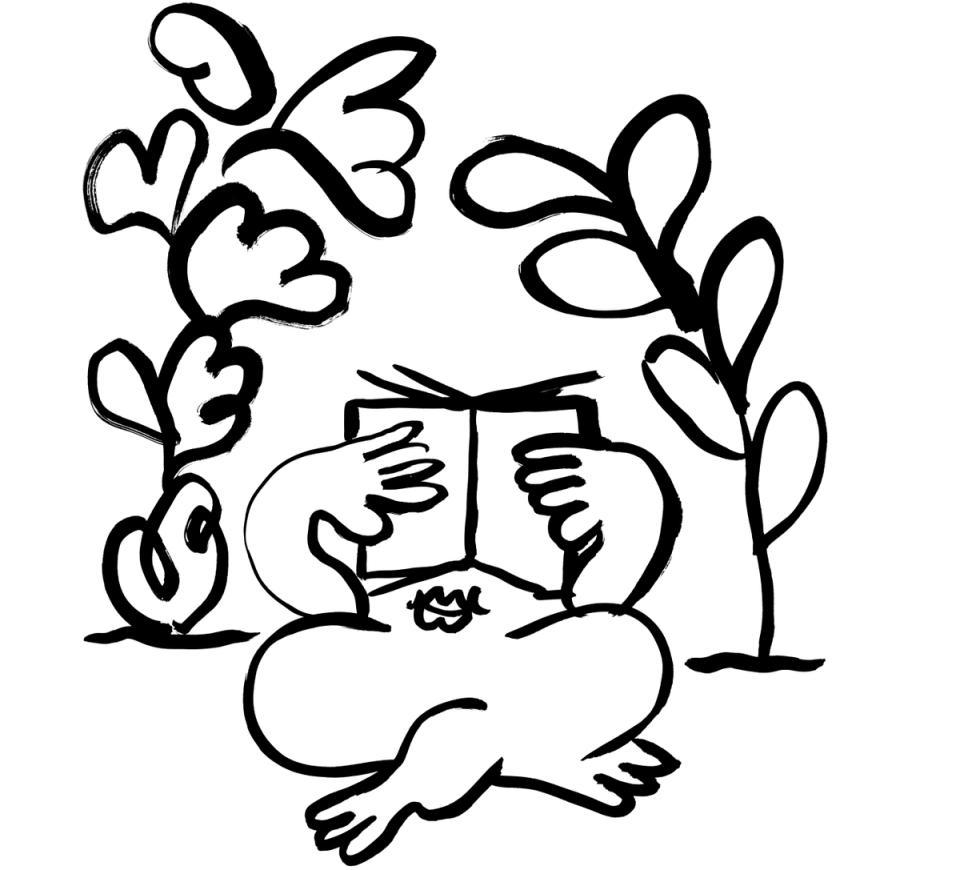Mindfulness
Meeting yourself
Getting quiet and deeply to yourself is often not that easy. Especially when it comes to observing your own thoughts for a moment and letting them go. In this interview, meditation coach Michaela Aue explains why it's normal (and even good) that our minds don't always shut down effortlessly. She reveals what it means to meet yourself, what effects meditation can have on our lives, and why it's already worth it to spend even just five minutes a day in silence.

Michaela Aue at our Location Waldlichtung. Image by Marcus Werner
Michaela, you've been practicing meditation for 20 years. How often do you become aware of the effect of meditation in everyday life?
It varies. I rather notice it in certain situations: that I have stopped swearing at people in traffic. That I can stand relaxed at the supermarket checkout without freaking out when I feel like I'm standing in the line that's the shortest but still takes the longest. That I'm not dependent on what's happening around me and that I’ve this feeling that everything is as it should be. I’m also said to be always very calm. I don't think that's always true because no one is serene all day long, but meditation has definitely changed a lot in my life.
We usually have a very specific idea of what meditation is. Can you tell us what meditation is not?
In a very classical way: mowing the lawn is not meditation. Doing the dishes is not meditation either. I know a lot of people say they get into a meditative state doing it. My mother supposedly gets into a meditative state while ironing, and she may, but that's not meditation. If you're really into it when you're doing the dishes, so much so that your fingers are feeling the water, the sponge and the suds, then maybe it's a mindful practice, but it's not meditation. Because you're not going into stillness, but you're still in action. Meditation is about bringing your senses from the outside to the inside and immersing yourself completely. Without any distractions. Mowing the lawn and washing the dishes is a distraction after all.
There are many prejudices against meditation, which ones do you encounter most often?
I always encounter the idea that people assume that they are not allowed to think during meditation. That there has to be total silence of thought. That's not going to happen. What we do during meditation is observe the thoughts. We let them come, we let them go. We try not to hold them, and we try not to judge or condemn them. But the thoughts themselves are allowed to be there, and it would be crazy if they weren't.
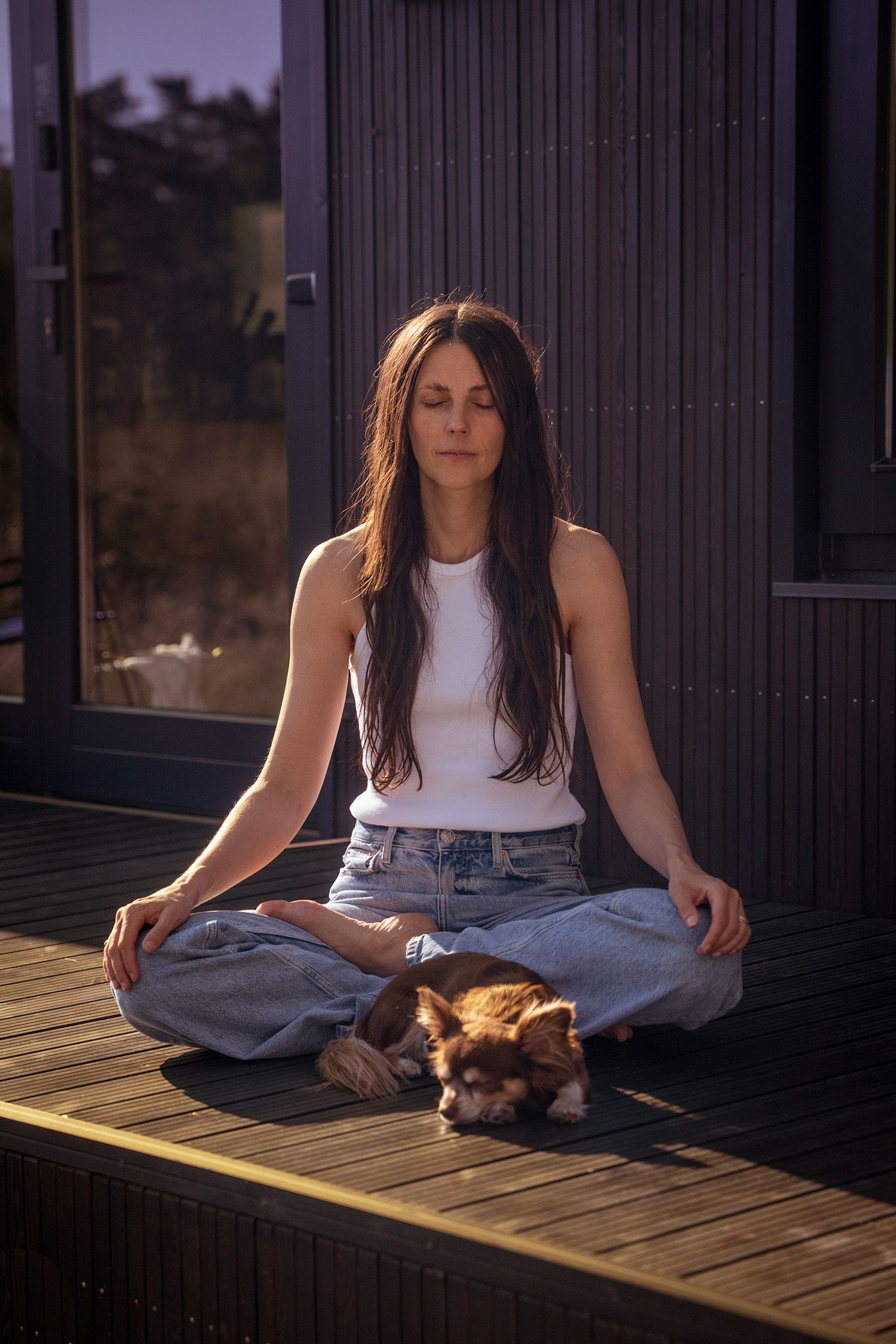
Image by Marcus Werner
How long do you have to practice meditation to feel an effect or notice a change?
It takes time to learn to withdraw oneself via classical forms of meditation, such as thought-observation. Through the breath, on the other hand, we have the quickest access to the nervous system. Therefore, this is the quickest way to free ourselves from the stresses of everyday life and, through breathing practices, we can immediately have an experience with ourselves on the way to really meeting ourselves.
What do you mean when you talk about "meeting yourself"?
Actually, meditation is about the question, "Who am I?" And that's regardless of any external factors – my job, my house, my car, my boat, my family, my pet, my children. That's really it. That's the encounter with yourself that you can have when you let go of all these ideas and constructs that surround us. "Who am I then?" This is a question that only everyone can answer for themselves. Meditation can help to find out the answer to this question for oneself. Certainly not in two sessions, but rather in 20 to 30 years. And the more you can answer this question for yourself, the more you meet yourself.
When you digress during a meditation, what do you do? How do you manage to regain focus?
I digress all the time in my meditations. My brain would be broken if I didn't. Our brain is there to keep playing thoughts back to us, especially when we get into silence during meditation. And that's good on the one hand, because that means our brain is working. On the other hand, it's now a matter of training our consciousness: "Ah, here comes a thought. Okay, I thought that one, I can push it aside, and then I'll get myself back." The only thing I might do faster than someone else is to have that awareness and say goodbye to that particular thought. That might take a little longer in the beginning. That's when you've gone through your to-do list for the week and then you realize that you've been somewhere else the whole time and you need to go through your list once again. It's nothing more than: notice, create awareness, get yourself back. Notice, create awareness, get yourself back. Anyone can do that.
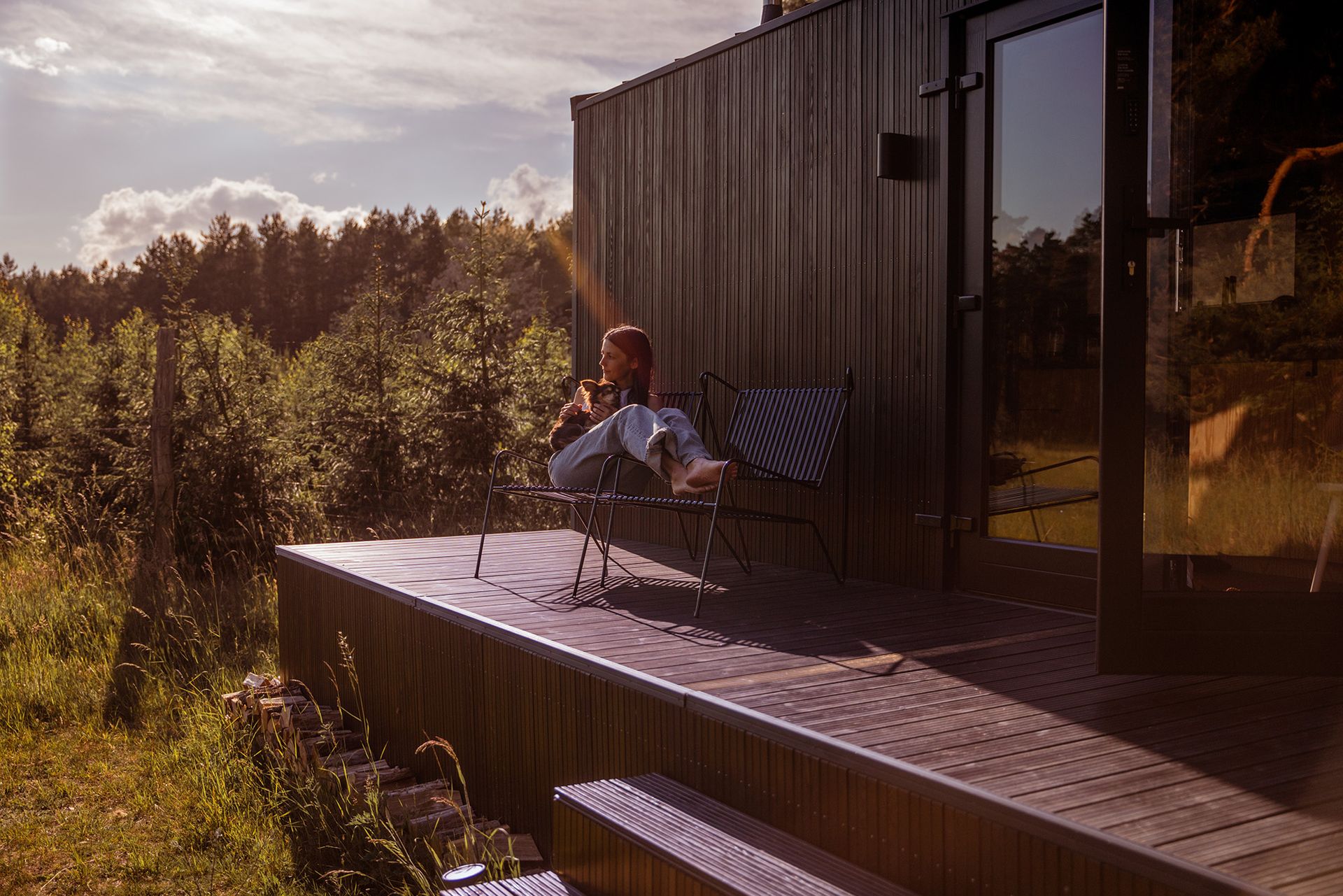
Image by Marcus Werner
What other challenges are there in meditating, other than getting yourself back?
Sticking with it is a challenge for many - really sitting down every day and just doing your meditation practice. It's quite often a time factor as well. Many people don't want to believe that five minutes of meditation every day will do so much more than an hour once a month. Meditation is basically like brushing your teeth, but for mental health. Something you do every day because it's good for you and because it helps you. And you should also do it every day because it takes practice. So you can slowly develop and see where the practice takes you.
For Raus, you developed three meditations, including a practice that you do while walking – a kind of meditative walk. What is it about?
The walking meditation is almost more of a mindfulness practice. It's about being in nature at that exact moment in your walk and noticing everything around you that's there right now. That you notice your body, for example how your feet feel, your legs and arms. It's about smelling, hearing and tasting what nature is like around you, depending on the season or the day. This awareness of yourself, in this environment, with all your senses – that's what it's about. In doing so, you can create a meditative state in that you are really in the moment and not with your to-do list, your work, or the argument with your parents.
What do you feel after meditation? How would you describe that state of mind?
At best, you feel really connected to yourself after a meditation. I think it feels very different for everyone, depending on which senses are particularly strong in us. For me personally, it's this feeling of being very close to myself and really hearing and feeling how I'm actually doing right now. And also the feeling that what is on the outside doesn't reach me at all. Sometimes it's a bit like being under a cheese cover, in a positive sense.
